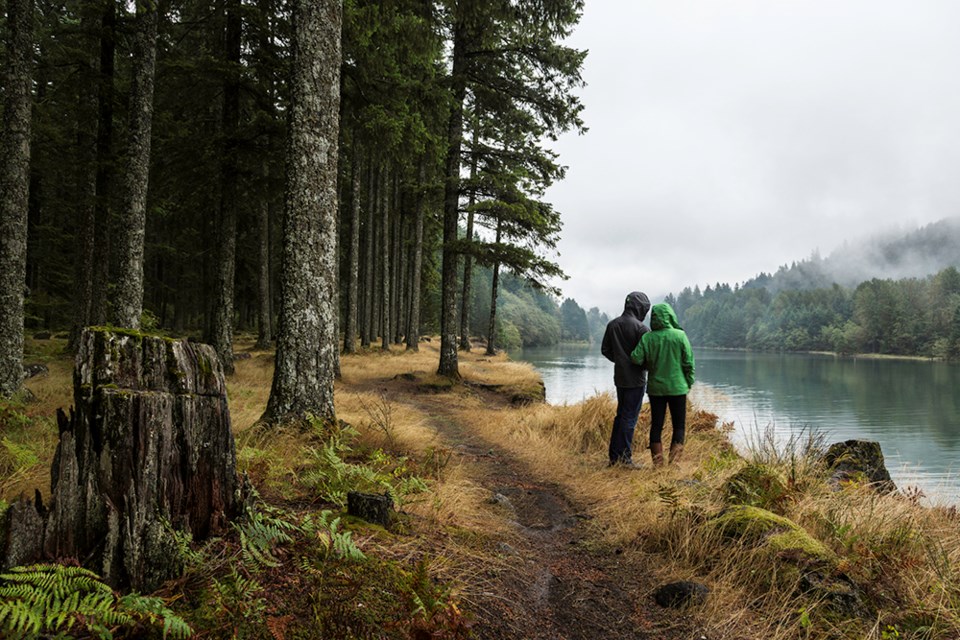Never have we lived in a time when we were more prone to distraction. Our gadgets buzz and beep continuously, ads flash onto screens, social media titillates, and online sales finger at our wallet.
The technological era can lull us into an inhumanly rapid rhythm of experiences and consumption. Contrast this pace of living with what happens when we’re swimming in a lake, walking on a trail or gazing out at a sunset.
The Japanese have a term, shinrin-yoku, which translates as forest bathing, meaning a leisurely walk amid trees without a phone or expectations, maybe even without shoes. It appears that exposure to the subtleties of nature: odour of trees, sound of a river and bio-diverse landscapes, are beneficial.
Studies have demonstrated that just 15 minutes of forest bathing reduces blood pressure and increases mental clarity. All that without using a credit card or taking something out of a shiny box.
Fortunately, life is not all in the fast lane. There is a resurgence of the art of slow.
Slow fashion encourages people to mend or make their own clothes and invest in fewer outfits made more sustainably. Slow food invites us to grow gardens, visit farmers’ markets and exchange recipes with friends. Even the workplace pace is shifting as people telecommute and save time by not getting in cars or engaging in some of the distractions of the workplace.
Permaculture, a design method often applied to gardens, but applicable in a much broader sense, is all about integrating systems and working smarter. In order to apply this, say on a newly purchased property, teachers strongly encourage a time of observation, possibly even a year, to witness all the seasons on the land, the migration of animals, where water pools, where the frost pockets are, et cetera.
Doing less initially allows one to create a design for a garden or home that will flow and require fewer fixes and changes down the road when new realizations arise.
Simplicity and minimalism in home décor are other facets of this more nature-paced living. Reducing clutter feels great and even seems to clear internal space, allowing for calm and focus to resurface. The less we have, the more we’re apt to both appreciate and care for what is left, too.
We all seem to know on an instinctive level that the fewer “toys” we have, the more enjoyable life can be. Less stuff means less maintenance, less need for insurance, less debt, and likely, less worry.
The price of admission, however, may be the challenge of resisting impulse purchasing. Cultivating a sense of satisfaction with what we already have is a gateway to simmering down the craving for more.
Becoming a conscious consumer often means not consuming so much. If that is hard for you, you’re not alone. We are overstimulated and in the habit of distracting ourselves with all kinds of things. Start where you are and find your exit to the slower, scenic route through life.
Whatever we can do to gear down will lead to incredible personal and ecological benefits for everyone whose address is planet earth.
Let’s Talk Trash is qathet Regional District’s waste-reduction education program. For more information, email [email protected] or go to LetsTalkTrash.ca.



